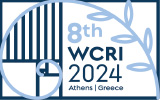
Plenary Sessions
Plenary A: The effects of Research Integrity on innovation and policy making
Research integrity promotes the production of reliable and trustworthy research. It has attracted significant attention across the research community and has itself become the object of research, mainly within academia. While the understanding of research integrity is deepening, ways to integrate it into the processes that produce innovation and inform policymaking still elude us. This plenary session is a milestone in the preparation of the “Athens Statement”, with the Keynote speakers sharing their insights regarding how research integrity enables reliable and trustworthy innovation and policymaking. It aims to inspire the participants of the 8th WCRI to be involved in the discussions of the two Focus Track sessions and address the following guiding questions: firstly, whether current approaches that promote trustworthy research in academic settings have a similar effect on translational research in non-academic settings and secondly, what are the perspectives of industry and policymakers on the operationalisation of research integrity in their sectors. The Keynote speakers, while keeping a strong focus on research integrity, bring the distinct perspective of crucial stakeholder groups, namely industry (A. Gilis), technology assessment and policymaking (T. Karapiperis), as well as metascience and reproducibility (D. Fanelli). All three Keynote speakers will have 20 minutes for their presentations, followed by 10-minute Q&As with the attendees.
Chair:
Panagiotis Kavouras, Senior Researcher, National Technical University of Athens, Greece.
Keynote speakers:
1. Theo Karapiperis, Former Head of Scientific Foresight (STOA) Unit at European Parliament (retired), Independent expert in technology assessment and science advice to policy and Vice-President of EuroScience.
2. Anja Gilis, Director of Nonclinical Compliance DPDS bij Janssen, Pharmaceutical Companies of Johnson and Johnson.
3. Daniele Fanelli, Heriot-Watt University.
Plenary B: The future(s) of reproducibility: how reproducibility reform improves research integrity
Reproducibility is a cornerstone of the scientific method (Popper 1944). Over the past decade, the scientific community has become increasingly concerned with the observed lack of reproducibility in research findings across various disciplines. This has raised questions about the trustworthiness and credibility of research results, their potential impact on research policy and innovation, and how it fosters research integrity.
However, the conversation around reproducibility has evolved, and experts consider it an opportunity for positive change. They believe that the ‘reproducibility crisis’ could reform research cultures that stimulate bad practices. There is also a growing awareness of how (ir)reproducibility may differ across fields (Fanelli2018) and how different epistemological and methodological conditions shape its implications and consequences (Leonelli2018) including the implementation of policy that promotes reproducibility.
In this plenary symposium, leading experts present the current state of affairs (1) related to disciplinary diversity, they presented new research results (2), which explore stakeholders’ (researchers, funders, and publishers) vision for their ideal future(s) for reproducibility, including the implementation of policy that foster research integrity. We discuss the culture change (3) needed to take the next steps for adaptation of reproducibility in diverse academic contexts and finally, we discuss the perspective of publishers on reproducibility.
Chair:
Lex Bouter, Professor Emeritus of Methodology and Integrity, Vrije Universiteit and Amsterdam University Medical Centers, The Netherlands.
Keynote speakers
1. Title: Building a research culture that is open, rigorous, and reproducible
Name: Timothy Errington, Center for Open Science (COS)
2. Title: The Future(s) of reproducibility from different disciplinary contexts
Name: Joeri Tijdink, AmsterdamUMC and VU University, Amsterdam
3. Title: The future of reproducibility from a publishers perspective
Name: Liz Allen, Executive Director of Strategic Initiatives at F1000
Plenary C: The 7th WCRI Cape Town statement on fostering research integrity through fairness and equity one year on
This plenary session will provide an overview of the now published Cape Town Statement on Fostering Research Integrity through Equity and Fairness. See article in Nature published on the 24th March 2023. https://www.nature.com/articles/d41586-023-00855-y. Key aspects of the statement will be highlighted including how and why a lack of fairness and equity in research can impact the integrity of research. The values recognised in the statement as important will be briefly summarized as well as the core areas of action identified, namely increasing diversity and inclusivity, fair practice in all aspects of research, supporting research management and translation infrastructure and processes, and the recognition of indigenous knowledge and role-players.
Speakers will specifically be asked to focus on how the statement can support the catalysing of the translation of research conducted in a fair and equitable manner into trustworthy policy and innovation, in line with the 8th WCRI theme. They will include the perspective from a Publisher as well as either a representative of the Association of Commonwealth Universities ( ACU) speaking about the ACU Research Equity toolkit.
Chair:
Eleni Spyrakou, National Technical University of Athens, Greece
Keynote speakers:
- Lyn Horn, Director, Office of Research Integrity, University of Cape Town, South Africa (statement overview)
- Michelle Brear (Australia) or another representative from the Association of Commonwealth Universities to speak on why the ACU decided to develop a Research Equity toolkit and how it can be used to strengthen the integrity of research especially within the context of translation and innovation.
- Ed Gerstner, Director, Research Environment Alliances, Springer Nature
Plenary D: Addressing the challenge of paper mills through research and policy
Growing numbers of research publications, commentaries in science and mainstream media, as well as a 2022 COPE/STM report, have recognized paper mills as a major challenge to publication and research integrity. This plenary session will feature 3 international experts who will present the latest policy and research on paper mills.
Deborah Kahn (UK) is a COPE director who played a lead role in the 2022 COPE/STM report on paper mills. Ms Kahn also co-chaired the 2023 United2Act global summit to address the challenge of paper mills. The United2Act Summit will produce an action plan that will be presented within this plenary session.
Dr Lisa Parker (Australia) is a clinician scientist whose research identifies features of suspected fraudulent publications, including those from paper mills, to inform development of screening tools. Dr Parker’s research draws on expertise from a range of participants, including research integrity experts, systematic reviewers and publishers.
Dr Thomas Stoeger (USA) is a data scientist whose research encompasses the literature analysis of suspected publications from paper mills. Dr Stoeger’s research analyses the temporal distributions of suspected paper mill products within broad journal cohorts, and how paper mill publication strategies may adapt in response to journal delisting.
Chair:
Jennifer Byrne, The University of Sydney, NSW Health Pathology, Sydney, Australia.
Keynote speakers:
- Paper mill submissions- identifying red flags for moving targets
Dr Lisa Parker
Charles Perkins Centre & School of Pharmacy, Faculty of Medicine & Health, University of Sydney - How research paper mills avoid consequences of journal de-indexing
Dr Thomas Stoeger
Northwestern University, Evanston, USA - United2Act on paper mills: an update
Ms Deborah Kahn, COPE
Plenary E: Tackling racial and ethnic bias when translating research into policy
Chair:
Sabine Kleinert, The Lancet Senior Editor, London, United Kingdom
• 3 Speakers discussing implications for different groups:
1) a Researcher – research integrity requires: a diverse research workforce, funding & infrastructure, as advocated in the Cape Town Statement; active participation by minoritised populations at all steps of the research process; transparent methods and rationale; diverse representation and appropriately disaggregated data that avoids stigmatisation; careful examination of confounding and structural factors lying behind inequity, and avoidance of simplistic or inaccurate inferences
2) an Anthropologist/Educator – trustworthy research translation requires: increasing awareness of race and ethnicity as sociopolitical, rather than biologic, constructs; teaching/modelling reflexivity when critiquing and implementing research; exposing and avoiding/combating inequitable practices and policies based on flawed data and interpretation (eg in diagnostic and management racial bias; use of race-based guidelines and decision making tools; policies that harm disadvantaged patients)
3) an Editor – integrity in research reporting and dissemination requires: diversity of authors, reviewers and editors; preventing gatekeeping of knowledge from minoritised scholars by recognising and dismantling barriers that exclude them from participation, while increasing their opportunities to participate; implementing minimum standards for publishing to advance equity
• Q&A
Keynote speakers:
- Researcher – Thirusha Naidu, Associate Professor, Department of Behavioural Medicine, Nelson R Mandela Medical School, and Head of Clinical Psychology Unit, King Dinuzulu Hospital, South Africa.
- Anthropologist/Educator/Clinician – Jessica Cerdena, anthropologist and physician, Yale, USA.
- Editor – Mabel Chew, Senior Editor, The Lancet and co-Chair, The Lancet’s Group for Racial Equity (GRacE)
Plenary F: Perspectives on Research Integrity and Generative Artificial Intelligence
Generative Artificial Intelligence (AI) – automated technologies that can be used to generate text, data, imagery, and a variety of other media, frequently indistinguishable from human-generated content – is now relevant across all academic disciplines and has profoundly changed the way research can be conducted. The new capabilities of generative AI technology heighten research integrity risks, as well as present opportunities for advancing responsible research.
Several questions not yet asked at the World Conferences emerge.
The principles of research integrity ensure trustworthy research – Are the established principles of research integrity robust to the development of new technologies, including generative AI?
Researchers remain responsible for the trustworthiness of their work irrespective of the tools they use – How can we support the responsible use of generative AI to ensure the positive impact of research?
There are many potential positive applications of generative AI technologies in research, and in particular, publishing – Should its use in publishing be banned?
New innovations are accessible and in use before policy can adapt – Must the AI Industry do more for research integrity? Can the research integrity community partner with Industry leaders to address these issues?
Chair:
Daniel Barr, RMIT University, Australia.
Keynote Speakers:
1. Perspective of publishers and policy makers
Joris van Rossum, Product Director, STM Integrity Hub
2. Perspective from Industry
Shanshan Yu, Senior research manager, AI trust research center, Fujitsu, Limited, Tokyo, Japan
3. Karin Verspoor, RMIT University, Australia





